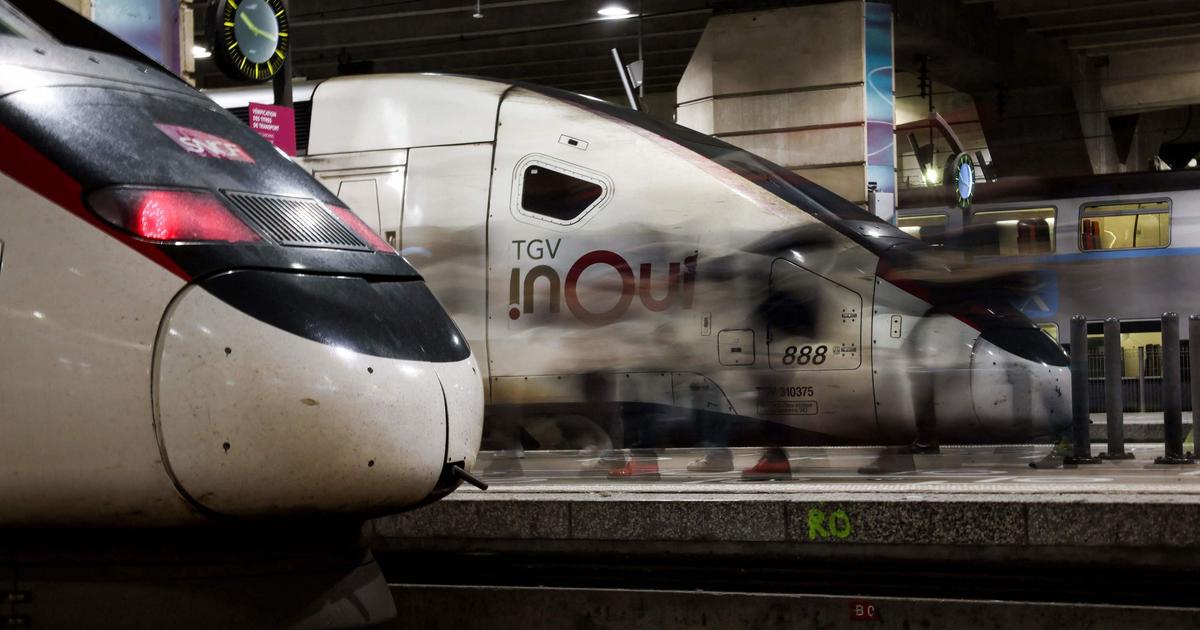The figures prove it, UFC-Que Choisir affirms it: at the SNCF,
“the fastest journeys have the highest prices per kilometer”
.
To come to such a conclusion, the consumer association analyzed the prices charged by the SNCF on 91 rail connections, including classic lines such as Paris-Lyon, Paris-Lille or Paris-Marseille, but also certain regional lines. like Rennes-Brest or international like Paris-London.
And the result is clear: if the price per kilometer is 0.19 euros on average for all distances combined (for an adult aged 30 to 59 traveling in second class), it is however necessary to count up to 0.23 euros on average for journeys of less than one hour, 0.20 euros on average for those between one and two hours, 0.19 euros on average for those between two and three hours, and more than 0.16 euros for journeys lasting more than three hours.
Concretely, the route which displays the highest price is none other than the Aix-en-Provence TGV-Avignon TGV.
A trip of just 20 minutes, the price per kilometer of which reaches 0.36 euros.
Followed by the Paris-Reims, which lasts 46 minutes, for 0.33 euros per km.
UFC-Que Choisir also takes the example of the Lille-Brussels connection (33 minutes), now operated by Eurostar, whose price has increased from 0.17 to 0.27 euros per km.
An increase of 59%.
On the contrary, Paris-Brest, Paris-Toulon, Dijon-Aix-en-Provence, Aéroport CDG-TGV-Aix-en-Provence TGV and Bordeaux-Tarbes have the lowest prices per km.
Read alsoThe toll tax, this tax which explodes the price of the train in France
Amortization of the cost of rail tolls
So how can we explain that the shortest journeys are ultimately the most expensive?
For UFC-Que Choisir, this observation is in fact
"logical"
, to the extent that
"in these configurations, the different fixed costs"
- whether it concerns the maintenance of the equipment, the famous tolls or even the payroll - are simply
“easier to amortize”
.
On the side of the SNCF, which has not yet responded to our requests regarding this study, we often cite the increase in the price of the toll tax - this tax that it pays like all the other competing operators to SNCF Réseau in order to to be able to run its trains in France - which, according to the railway company, represents up to 40% of the ticket price.
“The French model is unique in Europe: 100% of the maintenance and renovation of our structuring network is based on tolls, while other European countries have chosen to subsidize the infrastructure manager to maintain low tolls
,” SNCF Réseau already explained to Le
Figaro
a few months ago.
So the fault is a lack of financial involvement from the State?
This is indeed what some specialists think about issues related to rail transport in France.
Like Arnaud Aymé, director of the consulting firm Sia Partners, who believes that high toll prices allow the State
"not to invest a lot of money in maintaining the network"
, since the Most of this cost is covered by SNCF Réseau.
He also reminds him that
“the price of tolls for traveling on the lines has exploded in recent years”
, to the point of becoming
“the highest in Europe”
.
In 2024, the increase in tolls will even reach 8% on average, SNCF Réseau indicated in January, after years of increases below inflation.
The subsidiary which manages and maintains the expensive SNCF network does not hide its ambition to achieve, with these increases, financial balance in 2024.
“Tolls make it possible to compensate for all the investments made”
, also explained to the
Figaro
Alexandre Charpentier, railway expert at the Roland Berger consulting firm.
Prices equivalent to last year
In the meantime, UFC-Que Choisir notes in its study - which it also carried out in 2015, 2017, 2019 and 2023 - that these prices applied per kilometer have changed very little since last year.
In 2023, the price per kilometer was already 0.19 euros on average across all distances (for an adult aged 30 to 59 traveling in second class), compared to 0.16 euros in 2019, 0.17 euros in 2017 and 0 .16 euros in 2015.
The consumer association also recalls that this study was carried out before the recent announcement by the SNCF of the average increase of 2.6% in its fares.
“An increase in prices which will only concern TGVs, the prices of Intercités and Ouigo (not taken into account in this study) having been frozen”
, she adds, specifying that this increase
“is however
less than that of 2023 which had been 5
%
.

